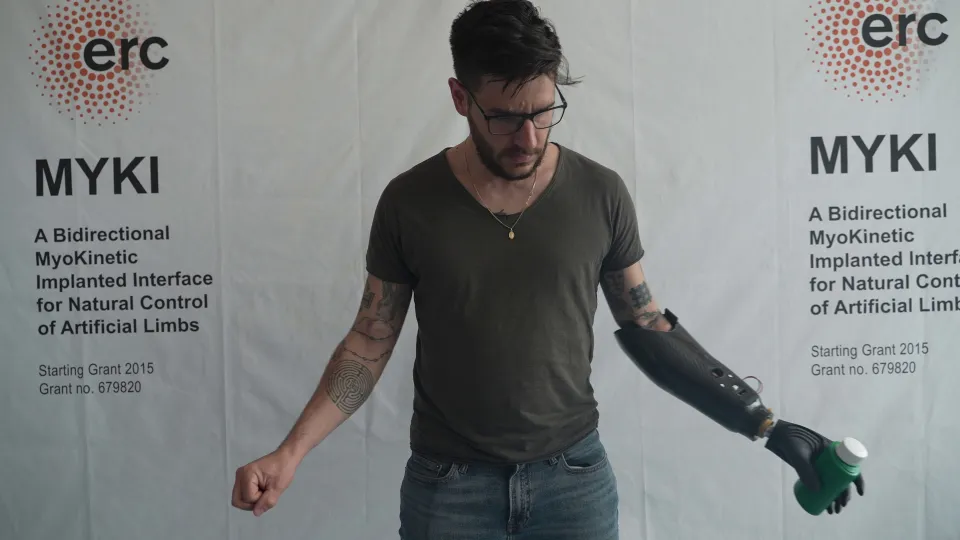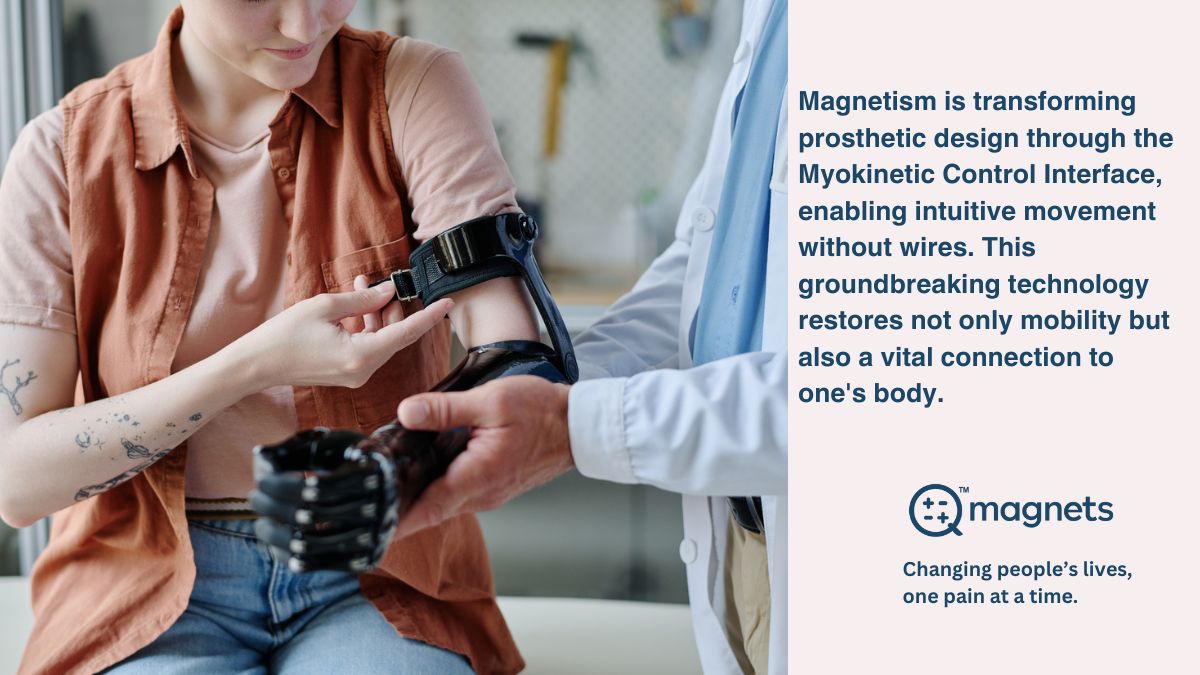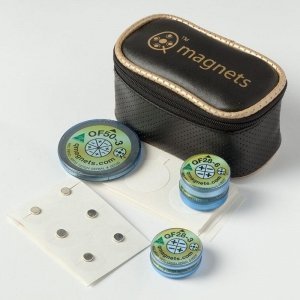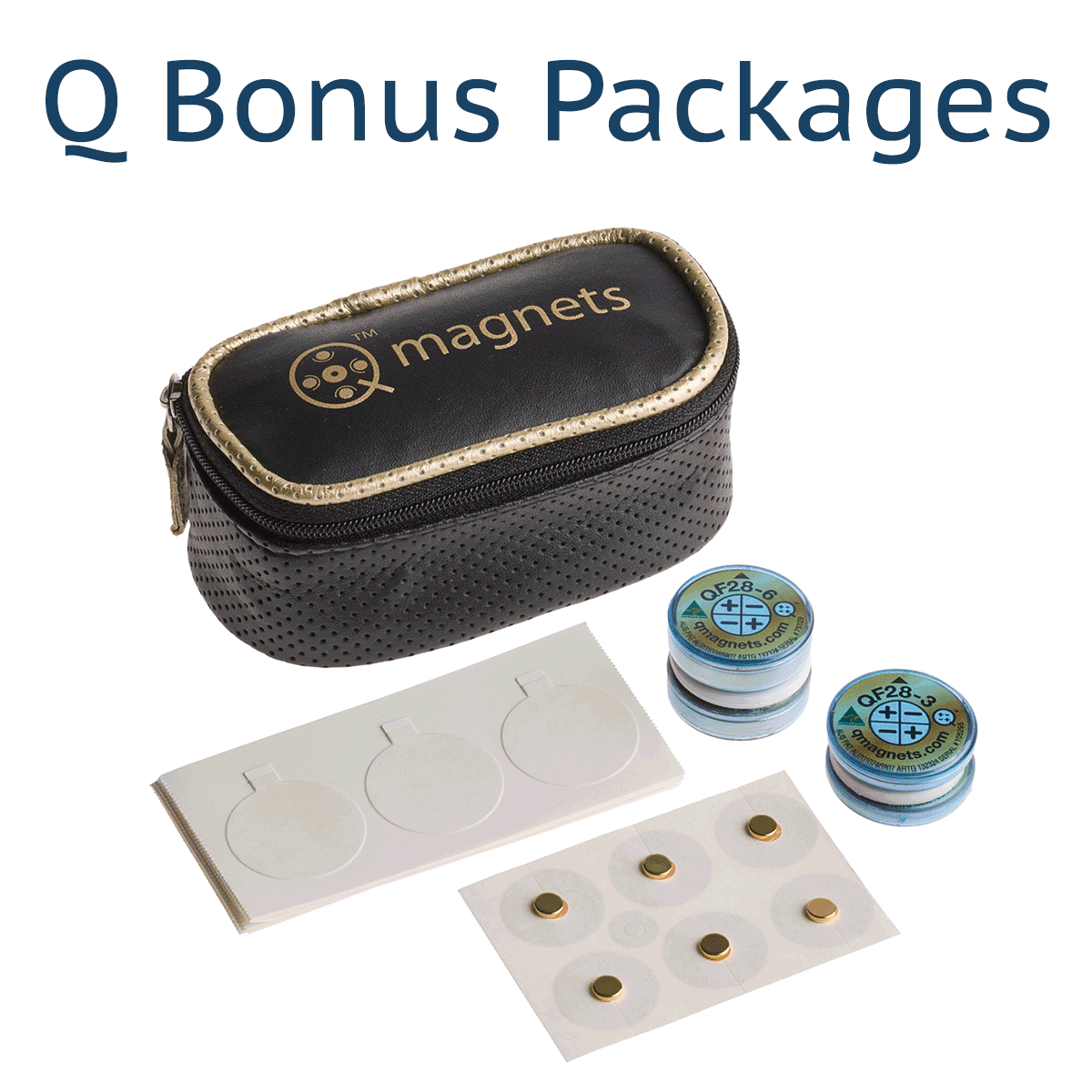In many ways, magnetism is at the cutting edge of medical research, think MRI and TMS. While Elon Musk’s groundbreaking Neuralink, uses electronics to connect the brain-computer interface and bring new life to quadriplegics. Few people realise that static magnets are opening similar possibilities for amputees and the journey from magnetism to movement is taking shape with Myokinetic Control Interface (MCI). MCI does not involve wires or electrical connections and incredibly uses only magnets and muscles to control movement. It delivers results, without the complexity of having to replace the nervous system.

Biomedical engineering is experiencing rapid technological advancement, especially in the field of prosthetics. Myokinetic Control Interface is rooted in the sensory-motor control loop, essential for natural limb movement. Research by Gherardini et al. (2023)1 explores this innovative method, which involves placing permanent magnets in the residual limb. This setup creates a direct connection between the prosthetic device and the user’s nerves, facilitating the restoration of sensory feedback crucial for improved movement control.
CBPR Inaugural Symposium – Prof. Christian Cipriani: The Myokinetic Control Interface
The following video features Professor Christian Cipriani discussing his innovative approach to controlling upper limb prosthetics. He explains how this method involves tracking implanted magnets within muscles to monitor their movement, which can then be used to control prosthetic devices.
The implications of this technology are profound, offering a promising solution to the challenges faced by amputees in adapting to traditional prosthetics. With MCI, individuals with limb loss can achieve unprecedented levels of dexterity and intuitive control. The seamless integration of sensory feedback and motor commands marks a significant advancement in bridging the gap between human capability and artificial limb functionality.
An article feature by The Sun2 highlights the remarkable story of an amputee who regained remarkable dexterity and precision in using a prosthetic hand equipped with magnets, thanks to the MCI.
The Future of Prosthetics: A Magnetic Revolution
As research continues to evolve, the potential for the Myokinetic Control Interface in prosthetic design is vast. Future developments may include further miniaturization of the magnetic components, improved algorithms for movement prediction, and enhanced integration with other assistive technologies.
Conclusion
The Myokinetic Control Interface represents a groundbreaking advancement in prosthetic technology, merging the principles of magnetism with innovative design to enhance the lives of amputees. By utilizing implanted magnets to track muscle movements and providing crucial sensory feedback, this system not only improves the control and functionality of prosthetic limbs but also restores a sense of connection to one’s body. As research progresses and real-world applications expand, the potential for this technology to transform the experience of prosthetic users is immense. The future holds promise for even greater advancements, paving the way for a new era in which mobility and independence are accessible to people living with limb loss.
REFERENCES
1.) https://www.sciencedirect.com/science/article/pii/S2468451123000168 Gherardini, M., et al (2023). The myokinetic interface: Implanting permanent magnets to restore the sensory-motor control loop in amputees. Current Opinion in Biomedical Engineering, Volume 27, 2023, 100460. doi
2.) https://www.thesun.co.uk/health/30408432/video-prosthetic-hand-magnets-amputee/ ‘GROUNDBREAKING’ Astonishing footage shows world’s first prosthetic hand controlled by magnets help amputee move ‘simply by thinking’. Published 12 Sep, 2024







